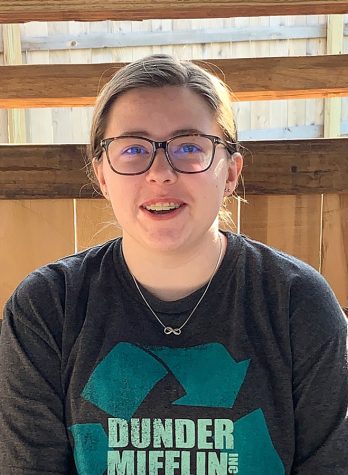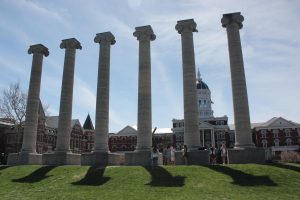Sleep priority hits students as school year starts
August 14, 2019
The room is dark and a sudden loud noise fills the room. Beep, beep, beep, beep is the only sound that can be heard and annoyance can be sensed. When a lazy hand hits the off button, eyes slowly close back. Suddenly, a bright light wakes a sleeping body and the morning has to begin. The alarm clock reads 5:30 a.m. and a grunt escapes a groggy student as they face the first day of school.
Sleep is important to the human body and important to the brain. According to www.sleepfoundation.org, to function at their best, students need eight to ten hours of sleep each night. Unfortunately, only 15 percent sleep 8 ½ hours on school nights. Sophomore Emma Brown found that her sleep pattern changes from summer time to school time.
“During the summer I fall asleep around 3 a.m. and wake up at 11 a.m. During the regular school year I usually fall asleep around 11 p.m. and wake up at 5:30 a.m.”
Brown gets roughly eight hours of sleep during the summer and only gets 6 ½ hours of sleep during the school year. Due to biological sleep pattern, it is natural to not fall asleep before 11 p.m. according to www.sleepfoundation.org.
School hours have been a debate for years and are suspected to go on for more. According to www.startschoollater.net, currently over 10 percent of United States high schools start before 7:30 a.m. and under 15 percent of high schools start after 8:30 a.m. Fort Osage High School currently starts at 7:30 a.m. and ends at 2:25 p.m.
Generally speaking, if she could change these school hours, sophomore Arianna Keneally said she, “Would not change the schedule.”
Safety is very important to parents and guardians when it comes to their students. According to www.startschoollater.net, for most of the school year in many countries, students are driving or walking to the bus in the dark. They are at risk, with few adults around.
“I would like to start the school day an hour later and end the school day an hour later,” sophomore Hannah Adams said.
Whether students decide to hit that snooze for another eight or ten minutes of sleep, the experts are clear that getting a good night’s rest will help them be more alert learners.






